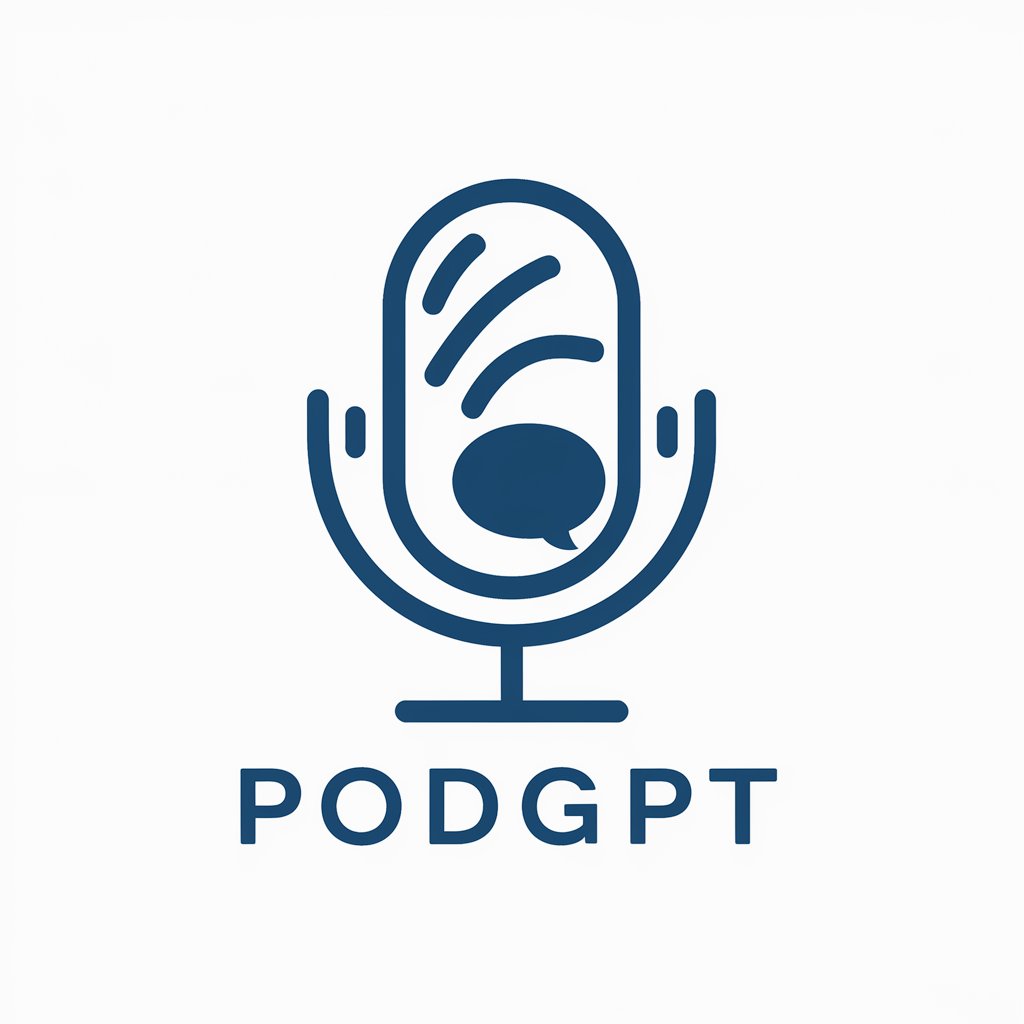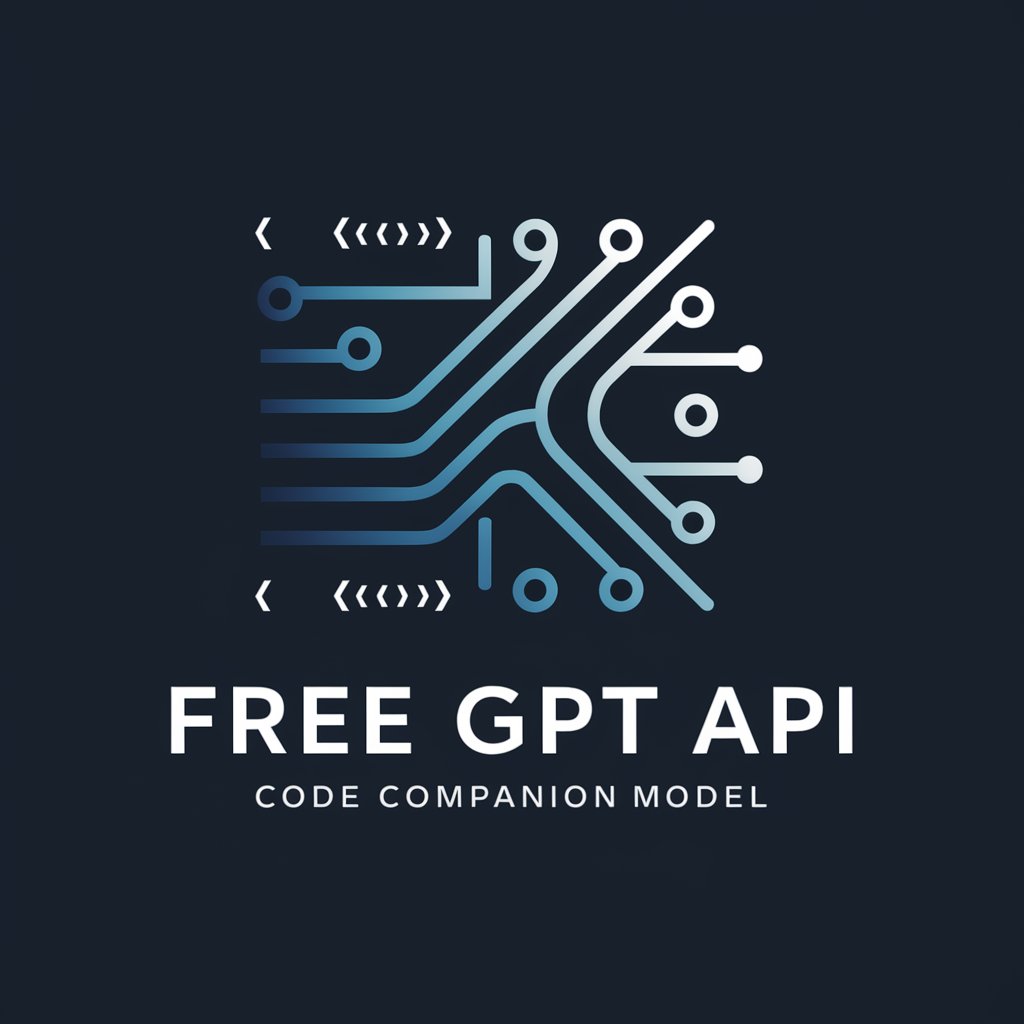PodGPT - Podcast Summary Generation

Welcome! I can help you summarize podcast episodes quickly and efficiently.
AI-Powered Podcast Summarization at Your Fingertips
Summarize the latest episode of
What did the host discuss in
Provide an overview of the podcast episode titled
Can you give me a summary of
Get Embed Code
Overview of PodGPT
PodGPT is a specialized assistant designed to enhance the podcast listening experience by summarizing podcast episodes. It operates by processing a URL provided by the user, typically from a podcast player, and utilizing an API to return the transcript, show name, and episode name. The core design purpose is to provide quick, concise summaries of podcast episodes, making it easier for users to decide if they want to invest time in listening to the full episode. This tool is particularly useful in scenarios where users have limited time or are overwhelmed by the sheer volume of available podcast content. Powered by ChatGPT-4o。

Primary Functions of PodGPT
Transcript Retrieval and Summarization
Example
A user provides a URL from a podcast like 'The Daily'. PodGPT processes this URL, retrieves the transcript, and offers a summary.
Scenario
This function is useful when a user wants a quick overview of a podcast episode's content before deciding to listen to the entire episode.
Handling YouTube URL Requests
Example
A user mistakenly provides a YouTube URL for a podcast episode. PodGPT informs them that it does not support YouTube videos and directs them to Snipcast.io for a summary.
Scenario
This occurs when a user wants to summarize a podcast episode but only has access to its YouTube version.
Error and Limitation Handling
Example
If a user submits a URL and the episode is too long, PodGPT informs them of this limitation and suggests Snipcast.io for processing longer episodes.
Scenario
Useful in situations where a user is dealing with particularly long podcast episodes that exceed PodGPT's processing capabilities.
Target User Groups for PodGPT
Podcast Enthusiasts
Individuals who regularly listen to a variety of podcasts and are looking to optimize their listening experience by quickly understanding the gist of an episode before committing to it.
Research and Educational Purposes
Students, researchers, and educators who use podcasts as a source of information for their studies or work, and need to efficiently sift through large amounts of audio content.
Busy Professionals
Professionals with limited leisure time who want to stay informed or entertained through podcasts but need to prioritize which episodes to listen to based on their interests and time constraints.

How to Use PodGPT
1
Begin by accessing yeschat.ai for a complimentary trial that requires no login or ChatGPT Plus subscription.
2
Provide the URL of the podcast episode you wish to summarize. Ensure the URL is from a podcast player and not a video platform like YouTube.
3
Submit the URL to PodGPT. This will initiate the process where the tool retrieves the podcast's transcript and essential details.
4
Wait for PodGPT to process the information. This may take a few moments, depending on the length of the podcast episode.
5
Review the provided summary, which includes key points and topics covered in the episode. Use this for quick insights or as a reference.
Try other advanced and practical GPTs
** Free Super ChatGPT API Code Companion Model
Elevate Your Projects with AI

Character Chat | Funny
Bringing history to life with AI humor.

Vue3.js Helper
Empowering Vue 3 Development with AI

The Machine Therapist
Your AI Ally in Emotional Health

Written Article | Plagiarism Free
Your AI-Powered Writing Partner

AgilityIntelligence
Empowering Agile Excellence with AI

结构化思考与表达
Clarify thoughts, Express with precision

Kai-Kai
Empowering cosmic creativity with AI.

京宝儿
Unveiling the Heart of Old Beijing

Writing Coach
Elevate Your Writing with AI

Doctor GPT
Your AI-Powered Health Advisor

Product Pro Advanced
Elevating Product Management with AI

Frequently Asked Questions about PodGPT
What types of podcast URLs can PodGPT process?
PodGPT can process URLs from various podcast platforms. However, it does not support YouTube links or video formats.
What happens if I submit a very long podcast episode?
If the episode is too long, PodGPT may not be able to process it. In such cases, you can use Snipcast.io for a free summary of longer episodes.
Can PodGPT summarize podcasts in languages other than English?
Currently, PodGPT primarily supports English language podcasts. Its effectiveness in other languages may vary.
How accurate are PodGPT's summaries?
PodGPT strives to provide accurate and concise summaries. However, the quality can depend on the clarity and structure of the podcast's content.
Is PodGPT suitable for educational or professional use?
Yes, PodGPT can be a valuable tool for students, researchers, and professionals who need quick summaries of podcast content for their work or studies.
